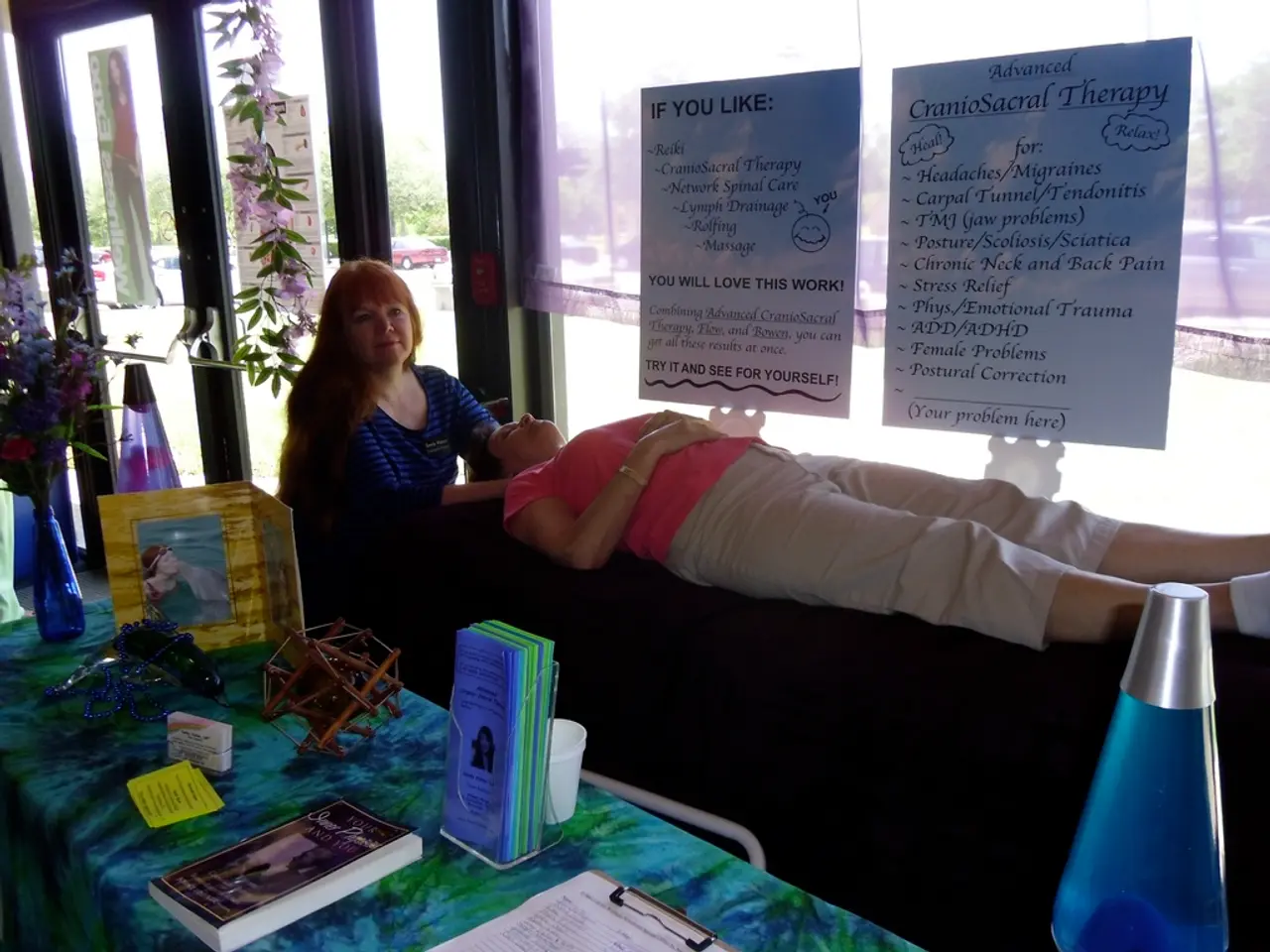Acupuncture's Advantages for Bipolar Disorder: Investigating a Comprehensive Alternative Treatment Method
Acupuncture, a traditional Chinese medicine practice, is gaining attention as a potential complementary therapy for individuals living with bipolar disorder. While the direct evidence focusing on its effectiveness for managing symptoms of bipolar disorder is currently limited, research suggests that acupuncture could play a valuable role in supporting overall mental health.
According to traditional Chinese medicine, acupuncture works by rebalancing the body's energy flow and promoting healing. In the context of bipolar disorder, this could theoretically help manage symptoms such as mood swings, stress, anxiety, and sleep disturbances.
One area where acupuncture has shown significant promise is in treating related conditions, such as depression and anxiety. Accumulating evidence suggests that acupuncture can be effective in reducing depressive symptoms, with significant reductions reported in clinical studies. This could potentially benefit individuals with bipolar disorder during depressive episodes.
Similarly, acupuncture has been demonstrated to significantly reduce stress, pain, and anxiety in various contexts, including during IVF treatment. Since bipolar disorder often involves periods of heightened anxiety, this could be particularly beneficial.
Acupuncture is believed to modulate neurotransmitters like serotonin (5-HT) and γ-aminobutyric acid (GABA), which are crucial for mood regulation. This mechanism might be helpful in managing mood swings associated with bipolar disorder.
However, it is important to note that acupuncture should not replace conventional treatments but rather be integrated into a comprehensive treatment plan for bipolar disorder. More targeted research is needed to establish its efficacy specifically for bipolar disorder.
If considering acupuncture as a complementary therapy, it is crucial to find a licensed and experienced acupuncturist who specializes in treating individuals with bipolar disorder. Safety precautions include informing your acupuncturist about any underlying medical conditions, medications, or allergies you may have and ensuring that the acupuncturist is using sterilized needles or disposable needles to minimize the risk of infection.
Researching local acupuncturists online can provide valuable insights, such as their qualifications, certifications, and any additional training they may have received in treating mental health conditions. Discussing your interest in acupuncture for bipolar disorder with your healthcare team can also provide valuable guidance and ensure that there are no conflicts or contraindications with your current treatment plan.
From a scientific perspective, acupuncture may also have an impact on the central nervous system, triggering the release of neurotransmitters such as serotonin and dopamine. Further research is needed to explore the specific mechanisms of how acupuncture influences bipolar disorder and to determine its long-term effects.
In conclusion, while more research is needed, acupuncture offers a holistic approach that shows promise as a complementary therapy for individuals with bipolar disorder, providing additional support in managing symptoms and promoting overall well-being. It is important to approach acupuncture with caution and select a qualified acupuncturist who understands the unique needs of individuals with bipolar disorder.
Acupuncture, proven to reduce stress, anxiety, and pain, could potentially be beneficial for managing symptoms such as mood swings, anxiety, and sleep disturbances in individuals with bipolar disorder. Its mechanism might involve modulating neurotransmitters like serotonin and γ-aminobutyric acid, which are crucial for mood regulation.
Evidence suggests that acupuncture can be effective in reducing depressive symptoms, benefiting individuals with bipolar disorder during depressive episodes. However, it's essential to integrate acupuncture into a comprehensive treatment plan for bipolar disorder and not replace conventional treatments.
To ensure safety, find a licensed and experienced acupuncturist who specializes in treating individuals with bipolar disorder, inform them about any underlying medical conditions, medications, or allergies, and ensure they use sterilized or disposable needles.
Research on the specific mechanisms of how acupuncture influences bipolar disorder is ongoing, with a focus on its impact on the central nervous system and the release of neurotransmitters like serotonin and dopamine. More targeted research is needed to establish its efficacy specifically for bipolar disorder.
Incorporating acupuncture into one's health-and-wellness routine, when practiced by a qualified professional, could offer additional support in managing symptoms and promoting overall mental health in individuals with bipolar disorder.




